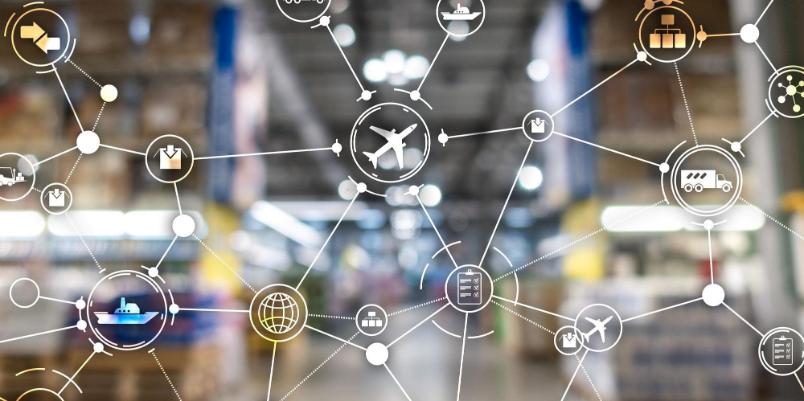In the dynamic landscape of technological advancements, one innovation that stands out for businesses seeking enhanced transparency in invoicing is blockchain technology. This comprehensive exploration will delve into the myriad ways in which blockchain technologies can revolutionize invoicing processes, offering unparalleled transparency, security, and efficiency.
Understanding the potential of blockchain in the invoicing realm involves considering its transformative impact on various financial processes. As we explore the benefits of blockchain technology, businesses can also leverage complementary tools such as the estimate template to enhance their overall financial management.
Understanding Blockchain Technology
Blockchain operates on a peer-to-peer network, meaning there is no central authority or intermediary overseeing transactions. Instead, each participant, or node, in the network has a copy of the entire blockchain. This decentralization is a key feature that contributes to the security and transparency of the technology.
When a new transaction occurs, it is broadcasted to the network for validation. Nodes on the network use consensus mechanisms, such as proof-of-work or proof-of-stake, to agree on the validity of the transaction. Once validated, the transaction is grouped with others into a block. Before being added to the blockchain, this block must undergo a cryptographic process, commonly known as hashing, which involves creating a unique identifier for the block based on its content.
Transparency in Invoicing
One of the primary benefits of integrating blockchain into the invoicing process is the unprecedented level of transparency it brings. Traditional invoicing systems often involve multiple intermediaries, leading to delays, disputes, and a lack of clarity. Blockchain, as a decentralized system, eliminates the need for intermediaries, allowing for real-time access to a transparent and immutable ledger.
Blockchain-powered invoicing provides a single, verifiable source of truth for all parties involved. Each invoice is recorded as a block on the blockchain, containing detailed information about the transaction, including the products or services, pricing, and payment terms. This transparency reduces the likelihood of errors, disputes, and fraudulent activities, fostering a more trustworthy and efficient invoicing ecosystem.
Smart Contracts and Automated Processes
Smart contracts, self-executing contracts with the terms of the agreement directly written into code, play a pivotal role in blockchain-based invoicing. These contracts automate the execution of predefined actions when specific conditions are met. In the context of invoicing, smart contracts can automate various processes, such as payment verification, delivery confirmation, and even automatic adjustments based on agreed-upon terms.
The use of smart contracts not only accelerates the invoicing process but also minimizes the risk of errors and disputes. Payments can be automatically triggered upon the completion of agreed-upon milestones, and the entire transaction history is securely recorded on the blockchain. This automation reduces the administrative burden on businesses, allowing them to focus on core operations rather than managing complex invoicing procedures.
Security and Fraud Prevention
Blockchain’s inherent security features make it an ideal solution for preventing fraud and ensuring the integrity of invoicing processes. The decentralized nature of the blockchain means that once a block is added to the chain, it cannot be altered retroactively without altering all subsequent blocks, making fraud nearly impossible.
Moreover, each participant in the blockchain network has a copy of the entire ledger, making it resilient to attacks. This distributed nature enhances the security of sensitive invoicing information, protecting businesses from data breaches and unauthorized access. Blockchain’s cryptographic algorithms further contribute to securing the authenticity of transactions, assuring businesses and their clients of the validity of each invoice.
Auditing and Compliance
Blockchain technology simplifies the auditing process and enhances compliance in the realm of invoicing. With a transparent and unchangeable ledger, auditing becomes more straightforward and less prone to errors. Auditors can efficiently trace each transaction, verify its accuracy, and ensure compliance with relevant regulations.
The immutability of the blockchain ledger also aids businesses in meeting compliance requirements. All changes to the ledger are visible to authorized participants, and any attempt to manipulate records is immediately detectable. This transparency not only facilitates adherence to regulatory standards but also instills confidence in clients and stakeholders, demonstrating a commitment to ethical and compliant business practices.
Integration with Existing Systems
Adopting blockchain technologies for invoicing does not necessitate a complete overhaul of existing systems. Blockchain solutions can be seamlessly integrated with a variety of existing invoicing and enterprise resource planning (ERP) systems. This integration ensures a smooth transition to blockchain-powered invoicing without disrupting ongoing business operations.
Businesses can leverage application programming interfaces (APIs) to connect their current invoicing systems with blockchain networks. This interoperability allows for the gradual adoption of blockchain technologies, ensuring that businesses can experience the benefits of enhanced transparency without undergoing a drastic and potentially disruptive transformation.
Case Studies
Real-world examples provide tangible evidence of the transformative impact blockchain technologies can have on invoicing processes. This section presents case studies of businesses that have successfully integrated blockchain into their invoicing systems, showcasing the before-and-after scenarios and the tangible benefits derived from such implementations.
Future Trends in Blockchain and Invoicing
The landscape of blockchain and invoicing is continually evolving. This section explores emerging technologies and trends that are poised to shape the future of financial operations. From the widespread adoption of blockchain in supply chain finance to the exploration of decentralized finance (DeFi) applications, businesses must anticipate and adapt to these trends to stay ahead in an increasingly digital financial landscape.
The future of blockchain and invoicing will witness a more extensive integration into supply chain finance. Blockchain’s transparent and traceable nature makes it an ideal solution for enhancing supply chain processes. Businesses will leverage blockchain to streamline the flow of information and value across the supply chain, from order placement to the final settlement of invoices. This integration can reduce inefficiencies, minimize errors, and provide a comprehensive view of the entire supply chain ecosystem.
Conclusion
In conclusion, the integration of blockchain technologies into invoicing processes offers businesses a transformative solution for enhancing transparency, security, and efficiency. From providing unprecedented levels of transparency and automating invoicing procedures with smart contracts to bolstering security measures and facilitating compliance, the advantages of blockchain in invoicing are profound. As businesses navigate the complexities of the modern financial landscape, embracing blockchain technologies becomes not just a technological upgrade but a strategic move towards fostering trust, reducing.





